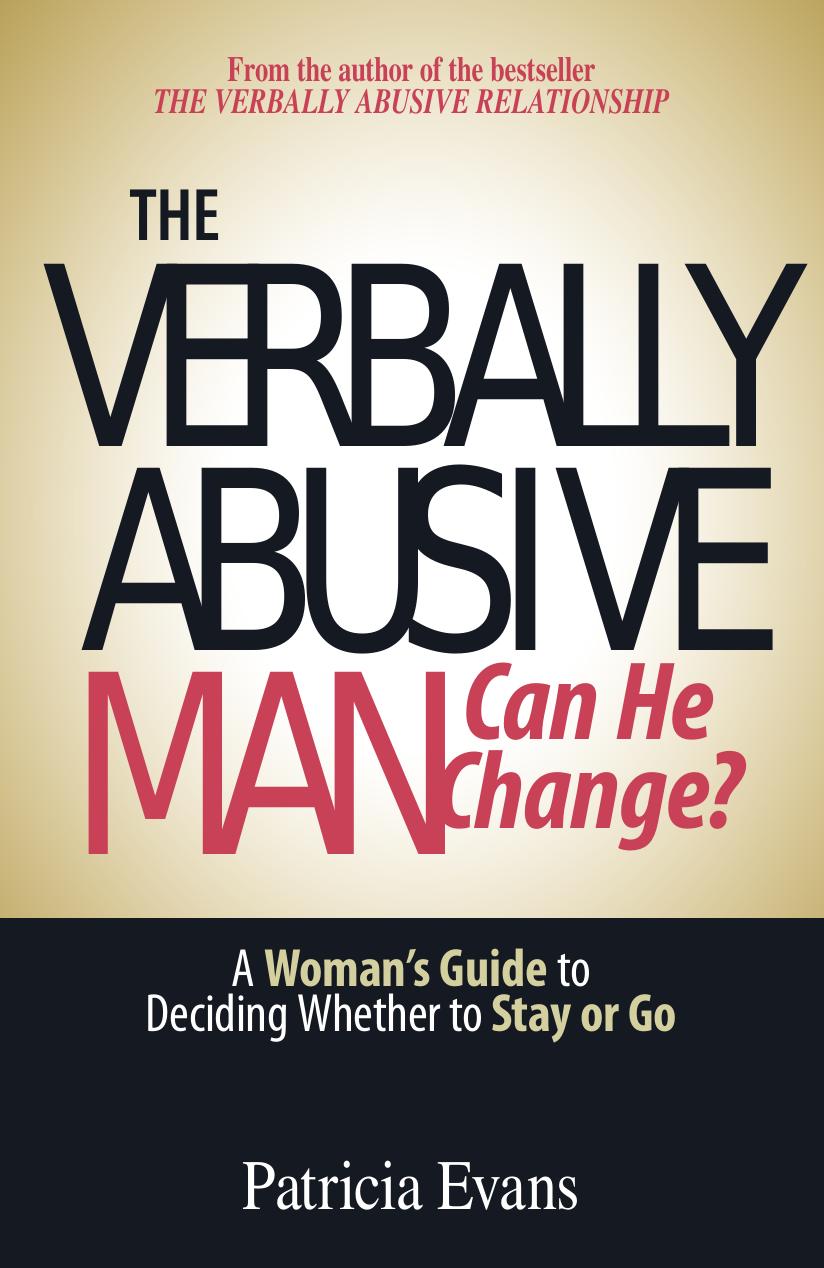The Verbally Abusive Man, Can He Change?: A Woman' Guide to Deciding Whether to Stay or Go by Patricia Evans

Author:Patricia Evans
Language: eng
Format: mobi, pdf
Tags: # Publisher: Adams Media, 9781593376536
Published: 0101-01-01T00:00:00+00:00
part i
Part I is about what you both agree not to say. To begin, please make a list of sentences you have heard that you would call verbally abusive. If you have read The Verbal y Abusive Relationship, you may have noticed that I broke verbal abuse into categories such as discounting, ordering, or blaming. You will not be breaking the verbally abusive statements into these categories for the Agreement. Instead, the Agreement will organize the verbally abusive statements according to what they tell you—that is, according to how they define you. To organize them this way, every time you recall an abusive statement, simply ask yourself, “What is this telling me? Is it telling me what I think? Is it telling me what I am? Is it telling me what I’m doing?” and so forth.
For example, your mate might say, “You’re too sensitive,” which tells you what you are. Then put that statement on your list under “what he says you are.”
Appendix A, page 227, contains a comprehensive breakout of verbally abusive statements. I suggest that if you have experienced verbal abuse in any situation, you go over all the lists to see if any of the verbally abusive statements are ones you’ve heard. If they are, and you are writing up an Agreement, please be sure to put them on your list. If they remind you of other statements, then use the ones you have heard. Only the statements that you have heard the verbally abusive man speak will resonate in his memory.
Of special note is the very covert verbal abuser who defines by implication and insinuation, or gives his partner the silent How to Write the Agreement
treatment, or walks away when she is talking. Since he is so covert, he may have difficulty realizing that he is abusive at all. It is as if his denial of what he is doing shows up in the abuse itself.
The covert abuser turns the defining statements into questions or accusations. Consequently, the Agreement can include an additional section that states that both parties agree that neither will define the other by implication or insinuation. See Appendix A, List 4, page 244.
Here’s an example. A woman who is raising a large family and managing it all with grace and kindness, but is becoming exhausted and ill from a seemingly never-ending assault by her husband, said to me, “My husband doesn’t tell me, ‘You don’t think,’ or ‘You’re stupid,’ but a day doesn’t go by that he doesn’t imply that I’ve done something thoughtless, wrong, or without intelligence.”
She continued, “He yells things like, ‘What were you thinking?’ all the time. He shouts this whenever something doesn’t match his idea of what should be happening. He is very clever about it. He doesn’t use ‘you’ statements like, ‘You don’t do your share,’ but instead says such things as, ‘When will you do your part in this marriage?’”
Download
The Verbally Abusive Man, Can He Change?: A Woman' Guide to Deciding Whether to Stay or Go by Patricia Evans.pdf
This site does not store any files on its server. We only index and link to content provided by other sites. Please contact the content providers to delete copyright contents if any and email us, we'll remove relevant links or contents immediately.
Should I Stay or Should I Go? by Ramani Durvasula(7658)
The Lost Art of Listening by Michael P. Nichols(7494)
The Rosie Project by Graeme Simsion(6381)
Beartown by Fredrik Backman(5737)
We Need to Talk by Celeste Headlee(5608)
Ego Is the Enemy by Ryan Holiday(5415)
Hunger by Roxane Gay(4922)
Suicide Notes by Michael Thomas Ford(4823)
I Love You But I Don't Trust You by Mira Kirshenbaum(3866)
Mummy Knew by Lisa James(3686)
Not a Diet Book by James Smith(3411)
Crazy Is My Superpower by A.J. Mendez Brooks(3398)
Toxic Parents by Susan Forward(3284)
Girl, Wash Your Face by Rachel Hollis(3282)
The Complete Idiot's Guide to Coping With Difficult People by Arlene Uhl(3145)
The Social Psychology of Inequality by Unknown(3019)
Name Book, The: Over 10,000 Names--Their Meanings, Origins, and Spiritual Significance by Astoria Dorothy(2979)
The Hard Questions by Susan Piver(2967)
The Gaslight Effect by Dr. Robin Stern(2791)
